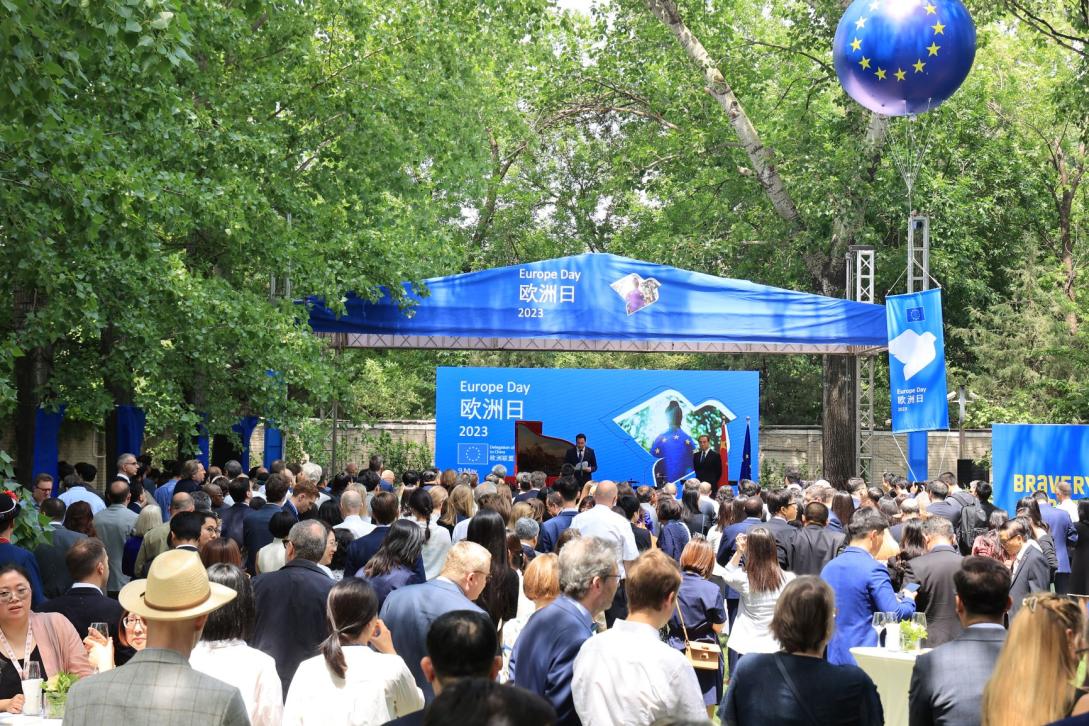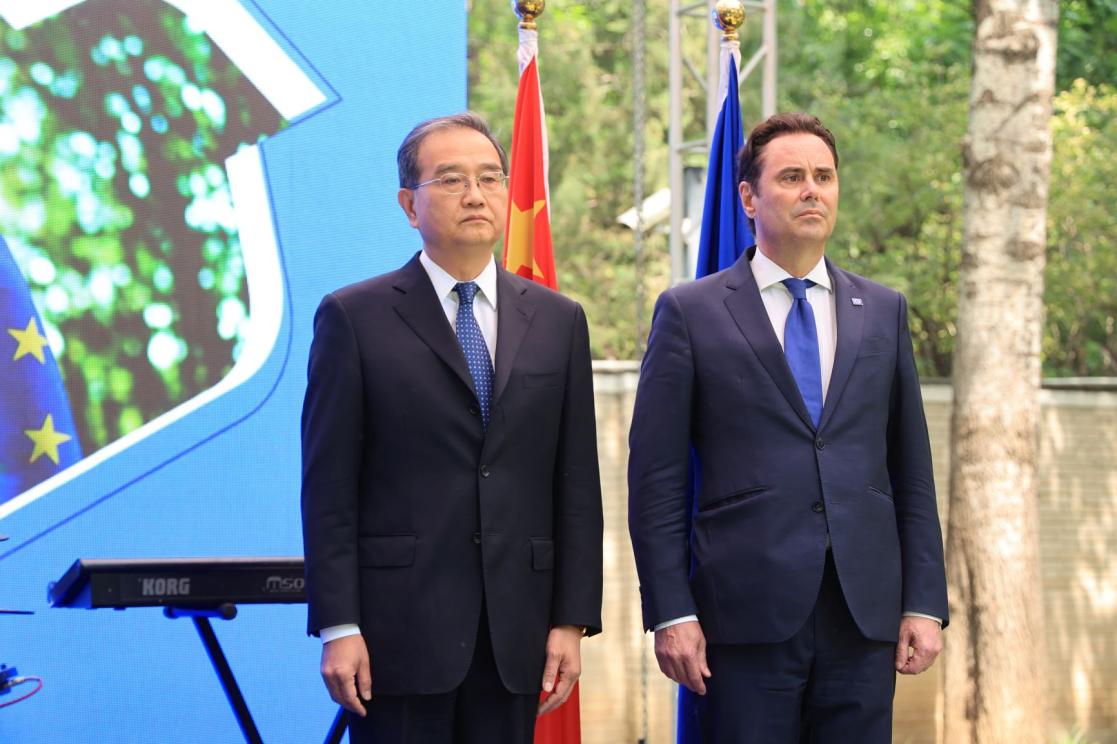Ambassador Jorge Toledo's speech at the Reception of Europe Day

Your Excellency, Vice-Minister Deng Li,
Dear colleagues and friends,
Ladies and Gentlemen,
Thank you for joining me here today to celebrate Europe Day. I would also like to thank our sponsors (European Investment Bank – Assagi Group – DP Group – Pernod Ricard China – Hoegaarden China – Madeira Wine – Yantai Changyu Wine) for helping us to hold this reception in a way that we have not been able to do since 2019.
What do we celebrate today?
On this day, 73 years ago, the Schuman Declaration was presented. It proposed the pooling of the production of coal and steel - two of the main raw materials for war! But the purpose was peace. After centuries of wars between European nations, two world wars had twice devastated Europe in the first half of the 20th century. No more wars in Europe was a unanimous demand.
This has taken us where we are today. And we have good reasons to feel proud of what we have achieved.
- We are proud of the longest period of peace in history between the nations of the European Union.
- We are proud of our Single Market, the 30th anniversary of which we celebrate this year. A large space where goods, services, capitals and people can circulate freely.
- We are proud of having dismantled most of our physical borders and that we are now able to circulate among most of our countries without any checks; that we can use our common currency, the euro, in most of our member states.
- We can be proud of our power of attraction. From the six original Members States, we have grown to 27 now, and many other countries are negotiating their accession, are candidates for membership, or have expressed their desire to join.
- We can be proud to say that there is no other region in the world where the respect for democracy, human rights and the rule of law is as advanced, or where people have better access to health care, education and welfare.
- We can be proud of being a force for peace and stability in the world; the first donor of development cooperation aid, the first contributor to the UN, one of the largest contributors to peacekeeping missions in the UN and to most international organizations, and that we are at the forefront of the fight against climate change, with the highest ambitions and CO2 reduction targets in the world.
We are proud, yes. But we also know that the European integration process has been, is, and will always be a work in process, that we have to work every day, that we have to reform and that we need to advance further in our integration, especially in common foreign and security policy, if we want to have a relevant voice in the current world. And we must be aware that we cannot take anything for granted, not even our hard-won peace.
And, unfortunately, peace in Europe - right at the European Union borders - was broken in the early hours of 24 February 2022, when Russia launched its brutal full-scale invasion against Ukraine. An invasion that reminds us, Europeans, of some of the worst episodes that unleashed World War II in Europe. For us, it is an existential question. Something which is precisely the kind of aggression that the United Nations was created to prevent and which is a flagrant violation of the most basic principles of the UN Charter. No “legitimate security concerns” can justify this aggression. This is why the European Union is helping Ukraine to defend itself and why we demand the withdrawal of the Russian troops from Ukrainian territory to completely restore its territorial integrity and sovereign independence. Those who say that the flaws in the European security architecture, or the expansion of NATO are the root causes of this tragedy, are fundamentally wrong, because it is in fact the opposite of what has happened. The Russian aggression against Ukraine has brought about the latest expansion of NATO, by two countries who had never thought of joining, but are doing so in the face of this aggression.
Let me also talk about the EU relation with China, which is in its 30th anniversary of strategic partnership. We want a constructive and positive relationship with China. We are ready and we are engaging with China. And the proof is that two highest-level visits of European Union that we have had in the last six months: President of the European Council and President of the European Commission. As you know, we define our relationship with China as a partnership, competition, and also systemic rivalry. Yes, but we need to use engagement and dialogue in all areas, especially when we disagree. Our dialogues, that we are going to hold this year, must produce concrete deliverables, whether it is on market access or on climate change, where we have a very productive and promising partnership. These deliverables must lead to a successful holding of the EU-China Summit in the second half of this year autumn.
In China, we are often told that we should understand China better. Today, I hope that all our guests will have an opportunity to understand the European Union better, and to enjoy the diversity of our culture, music, and food. We hope and we expect that we will resume strongly our people-to-people exchanges as soon as possible.

